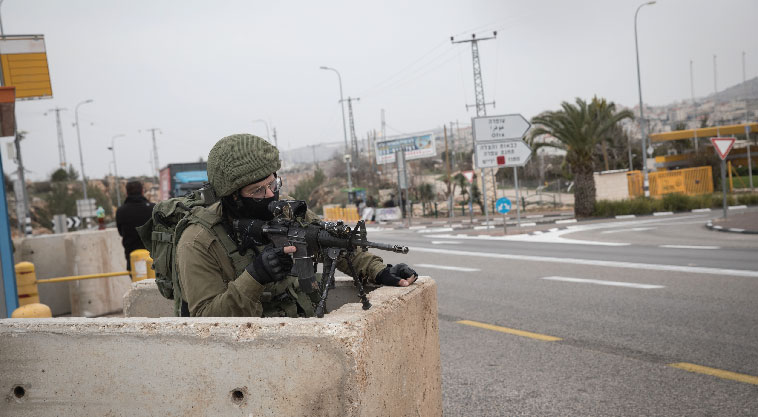For Hamas, a Change in Tactics


According to IDF sources, the Hamas cell responsible for the attacks operates out of Ramallah, and, for now, is acting on its own. There is not yet any coordinated campaign of demonstrations, though the number of stone-throwing incidents on the roads is rising.
The recent incidents in Ofra and Givat Assaf, in which a four-day-old baby (coverage on p. 34) and soldiers Yuval Mor Yosef and Yossi Cohen, Hashem yinkom damam, were killed, will require the IDF and the Shin Bet to reevaluate their readiness.
In the Givat Assaf attack, a lone Palestinian shot and killed two soldiers and got away, taking the personal weapon of one of the soldiers. In Ofra, a group of Palestinians managed to fire on a bus stop of civilians and soldiers and then escape unscathed. It is not the first time in recent months that operational discipline within the IDF appears lacking.
The attacks also herald a change in tactics by Hamas. In recent years, Israel has thwarted hundreds of attacks by Hamas cells operating out of Judea and Samaria. The hierarchy in these cases was clear: Salah Arouri, the Hamas military official who travels between Lebanon and Turkey, directed the operations, and terrorists deported to Gaza as part of the Shalit deal carried them out.
Now the cells are being dispatched directly from Gaza, with no involvement of Arouri or the Shalit deportees. It seems that Hamas is trying to shorten its command structure and improve its operational effectiveness.
All of this is taking place while Hamas is attempting to reach a long-term cease-fire deal with Israel in Gaza. One immediate result of the deadly attacks is to undermine the authority of Palestinian Authority president Mahmoud Abbas and strain security coordination between Israel and the PA.
Still, Hamas wants to avoid a war. In principle, the continued flow of fuel and salaries into Gaza, funded by Qatar, promises to help preserve the quiet. But now the possibility rises that the escalation in Judea and Samaria will affect what happens in Gaza.
Hamas will not conclude a long-term agreement without securing its terms: a significant easement of the Gaza blockade, an improvement in civilian infrastructure, and the preservation of its military might. Though Israel has tried to make the return of the bodies of its two soldiers, Hadar Goldin and Oron Shaul, part of the negotiations, Hamas has refused, insisting that open wound is a separate issue. (Originally featured in Mishpacha, Issue 740)
Oops! We could not locate your form.













